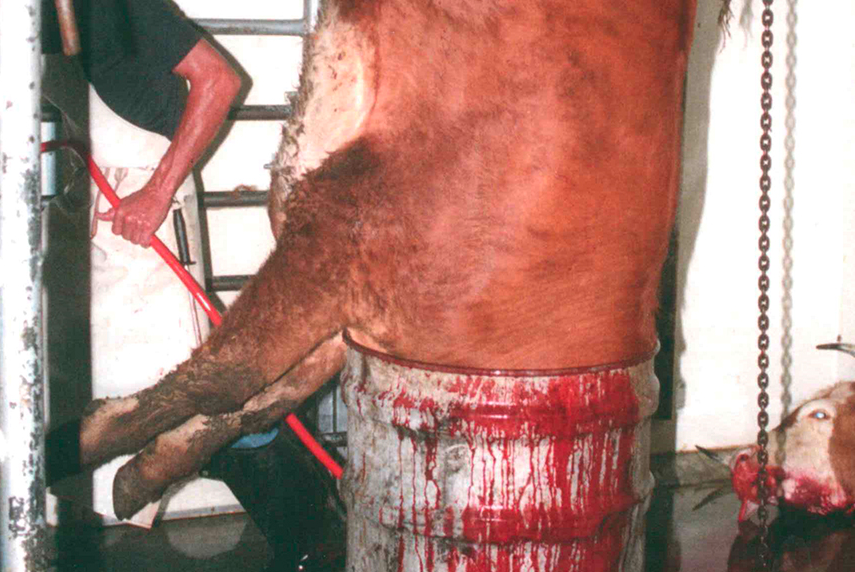The Cow
by Ariana Reines
Fence Books, $14 (paper)
The Cow, Reines’s first book, opens lyrically: “The day is a fume. At starboard, a white kirtle which is the moon. The day has a hallmark, the night also.” This lyricism is sustained for a few poems, but soon thereafter the sensual grit of Reines’s project rears its head and dominates the book: “I held his cock while he peed with it.” The Cow draws its imagery extensively, and explicitly, from the cow, its body, and the human and its body; it flirts with a certain grrrl fierceness, but the work ultimately feels less invested in gender per se than in humanness. The book as a whole is concerned with processing, production, and rendering, and while a poem might focus on the processing of an animal into various products for human consumption, Reines is also concerned with how we humans are “processed” through our relationships with others and through the approximations of language. Both identity and meaning are multifarious, interconnected: “Everything is part of something.” In this way the cow is animal, product, woman, and action: “I am not the nice man in the mart I am the mart itself, which is inside of a dog . . . I am inside of him and a mart isn’t an I.” The body is not only image or occasion to write, but integral to the act of creation: “My whole body writes.” And just as the various parts of the cow as product are graphically detailed, language itself can be broken apart (“an umlaut could be a cousin’s bone”) or condensed or ground up (“glv ovr me. Brns; ozne”). As interested as Reines is in communication and representation, she seems to retain a healthy dose of suspicion in her project, beginning her final poem with the line “Does a resemblance really mean anything.” There is a desire in this narrator to “empty language out of me,” but after such a visceral defecation, what is left? “What. Now What,” she writes, and like Beckett, she embraces her paradox, finishing The Cow on “Go on. Go on.”








